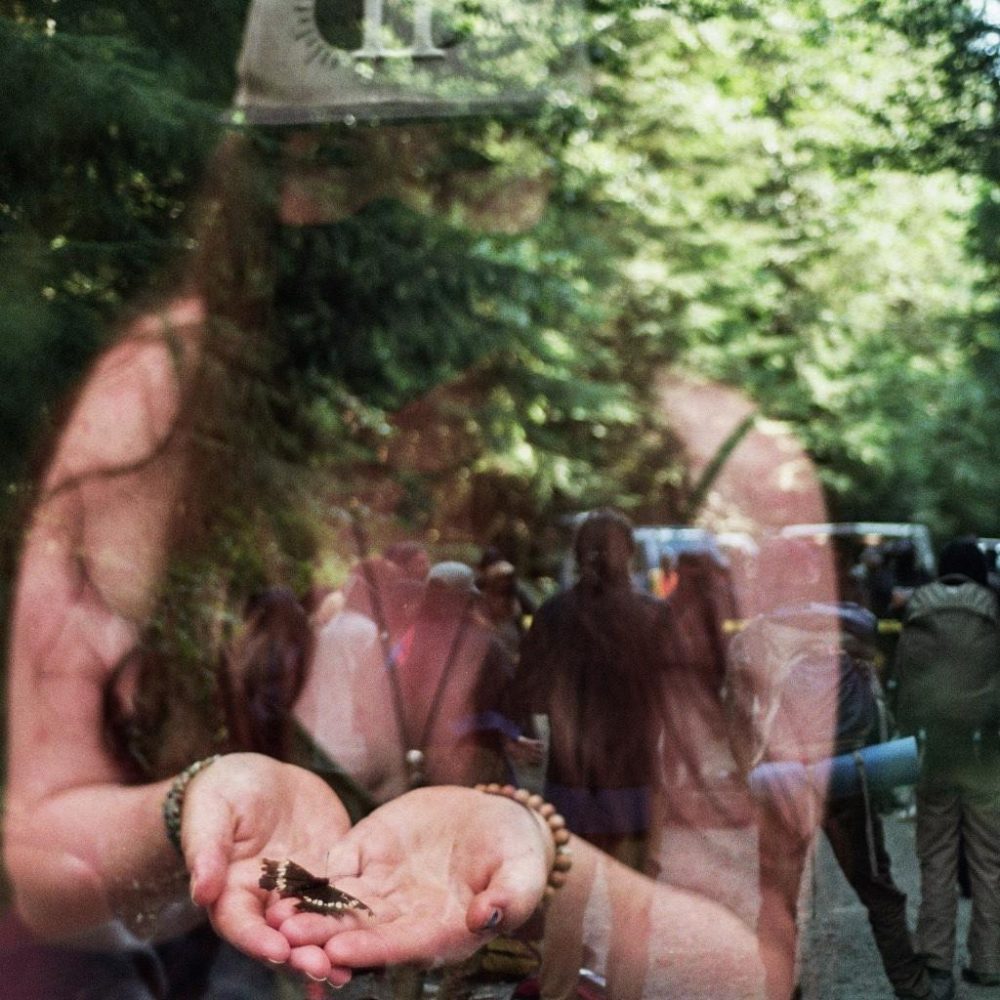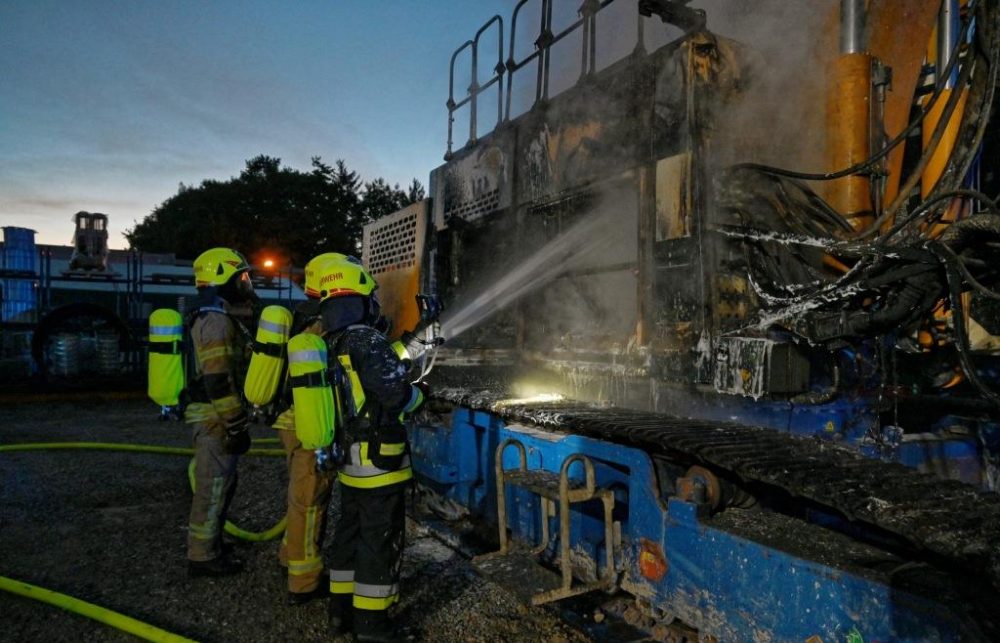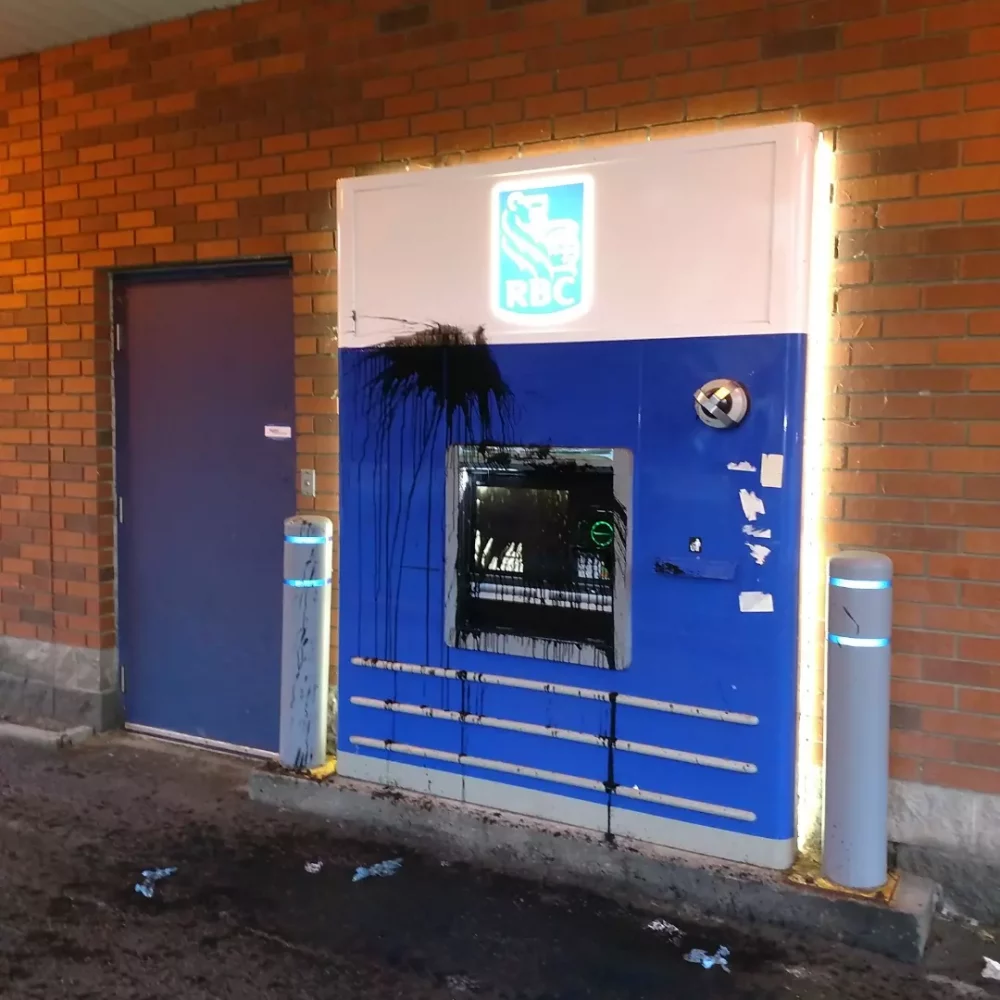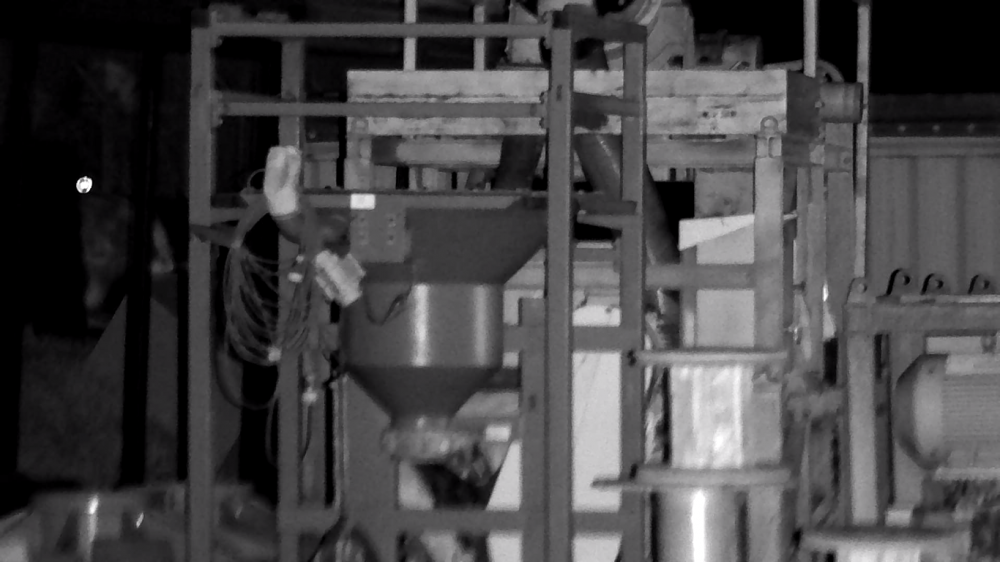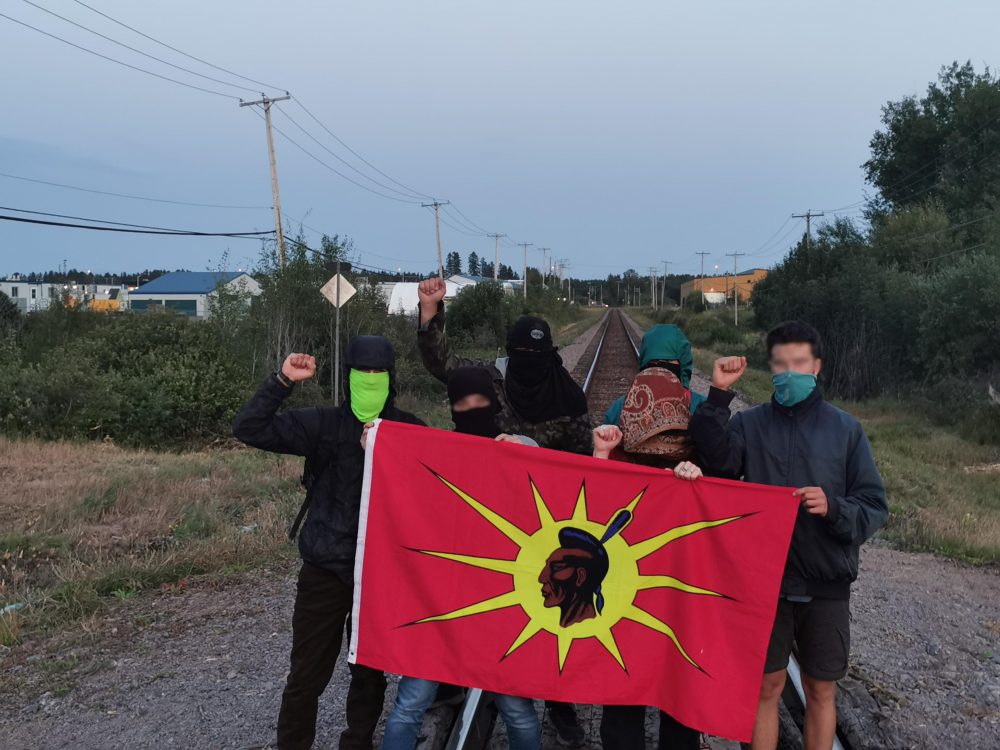
Anonymous submission to MTL Counter-info
Wednesday evening, a collective of Indigenous and settler activists blocked the Roberval-Saguenay railroad belonging to the multinational corporation Rio Tinto in solidarity with the National Committee for First Peoples’ Rights which is paralyzing for a third consecutive day the railroad line located at the border of Labrador and Schefferville, which is used by the mining company Tata Steel. The solidarity blockade lasted one hour. These actions have the objective of reminding the governments that the members of the Indigenous communities in this country will no longer accept any compromises regarding criminal acts committed against them.
The band councils of Uashat mak Mani-utenam (ITUM) and Matimekush-Lac John are suspected of having obtained the majority of electoral votes through corruption, fraud, extortion, and breach of trust. The alleged acts took place between 2019 and 2022 and involved nearly $1.8 million in bribes and favors of various kinds. In the official complaint formulated to the Sûreté du Québec by the First Peoples’ Rights Committee, a list of evidence coming directly from ITUM’s accounting system shows that there were, without the knowledge of the members, approximately 325 billing payments from registrants for an approximate amount of $1,780,000. This amount would be the result of a contract signed with the mining company IOC Rio-Tinto in 2020, in which Chief Mike McKenzie’s team would have hidden the legal meaning of the numerous clauses of this agreement from the members, which would have had the effect of giving away, in an exclusive manner and without any time limit, all future rights to decision-making about exploitation of natural resources on the unceded Great Nitassinan, the territory of the Innuat people!
Today’s action by the collective in Saguenay is a reminder that the Iron Ore Company of Canada (IOC) and the band councils, which are nothing more than organizations of colonial assimilation set up by the federal government, are not masters of unceded Nitassinan. Agreements signed illegally, by extortion, without the consent of the entire Innuat people, will never again be tolerated. The mining companies have been destroying and polluting the territory of the Innuat for several decades. Our action is a direct act of ancestral sovereignty of the First Peoples. We have been perpetuating this ancestral governance for thousands of years. We are also acting for future generations to leave them a healthy land and to perpetuate our ancestral rights, our sacred relationship with Assi (the Earth) and all living beings. Enough is enough! Today we are acting in the name of a movement by Indigenous people and their allies, to denounce these criminal acts sanctioned by the Canadian and Quebec courts. We call for the multiplication of solidarity actions in relation to this struggle.




